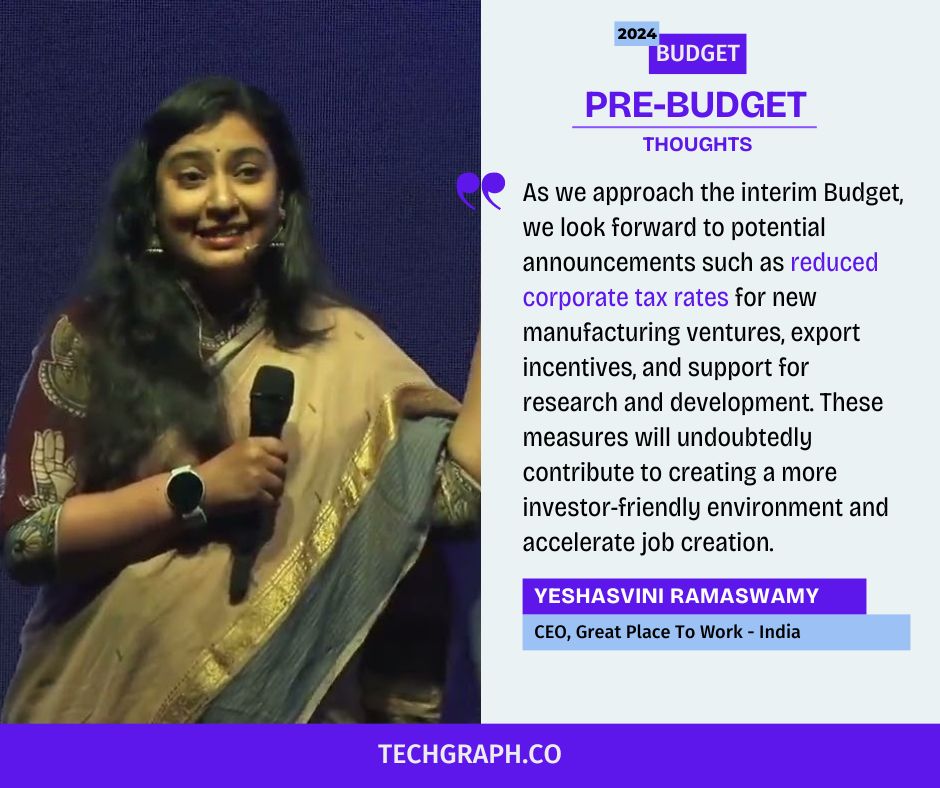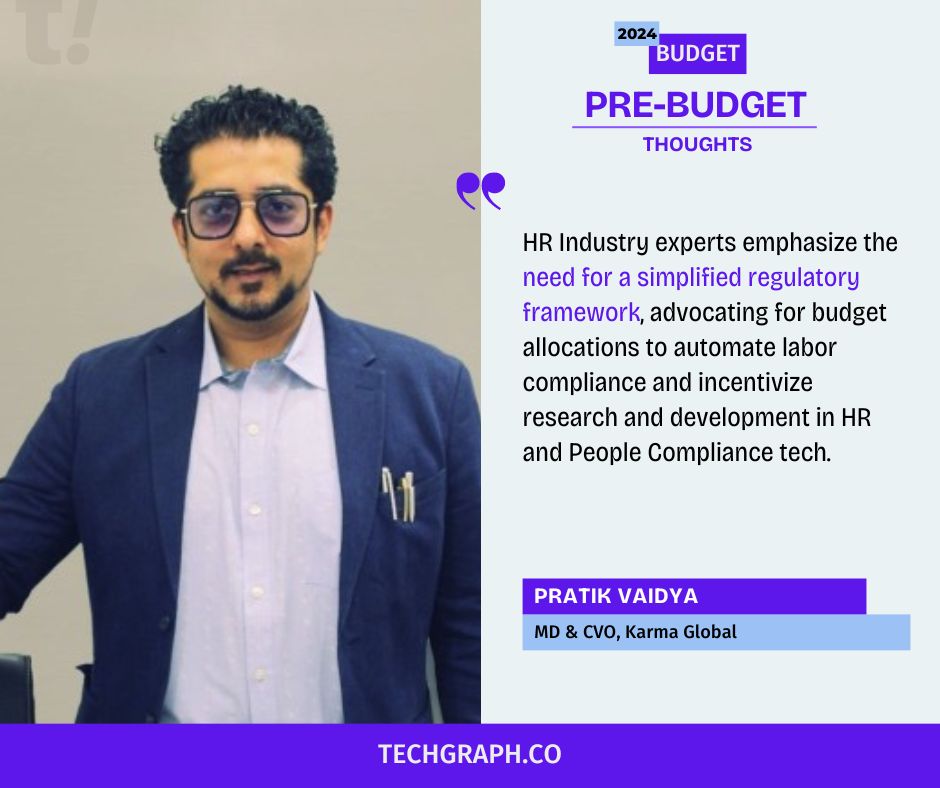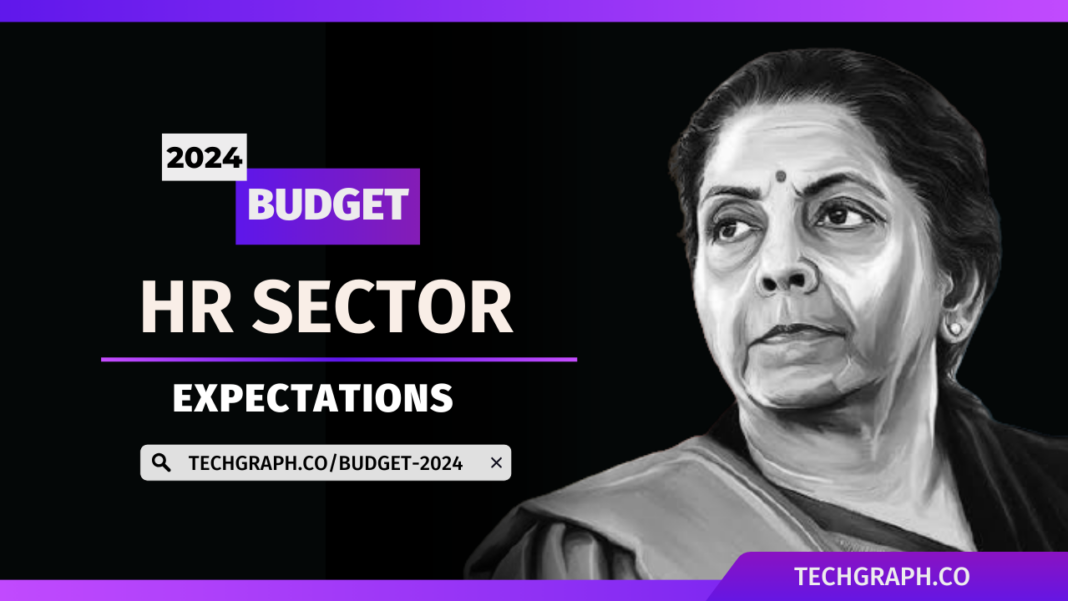As the anticipation builds around the interim union budget 2024-25, the human resource (HR) and staffing sector eagerly await policy measures that will shape the landscape of their industry.
Here’s a breakdown of their perspectives:
Yeshasvini Ramaswamy, Serial Entrepreneur & CEO of Great Place To Work, India

I find myself eagerly anticipating the fiscal roadmap that will shape our nation’s trajectory. The upcoming Union budget may be interim, yet its significance is paramount in guiding our economic future. With the recent surge in India’s GDP by 7.6% in Q3 of 2023 and an impressive 7.8% in Q1 of FY24, our nation’s economic prowess stands tall on the global stage.
In the realm of workplace culture and HR, some of our expectations for the upcoming budget are obvious. The HR sector seeks simplification of labor laws, refinement of Provident Fund (PF) and Employee State Insurance (ESI) schemes, and enhanced tax incentives. The complexity of compliance needs a pragmatic approach to look at things more simply, fostering talent development remains crucial and thereby calls for stronger incentives, and support for startups through inclusive and flexible fiscal incentives remains paramount.
One of the key pillars of our expectations lies in enhanced tax incentives. India has actively embraced reforms in its direct tax policy, aiming to boost efficiency and transparency. While notable changes have been introduced, our tax policy remains intricate.
As we approach the interim Budget, we look forward to potential announcements such as reduced corporate tax rates for new manufacturing ventures, export incentives, and support for research and development. These measures will undoubtedly contribute to creating a more investor-friendly environment and accelerate job creation.
The interim Budget for the fiscal year 2024-25 promises to steer our nation toward a future marked by simplicity, inclusivity, innovation, and economic empowerment.
For me personally, I will look forward to more protection, benefits for women employees, and ease of legislation to promote women entrepreneurs, especially in the semi-urban and rural areas of India, with a specific call out to the technology sector. As a thought leader in Workplace culture, I believe that these measures will not only enhance diversity and inclusion but also contribute significantly to the socio-economic development of our nation.
Pratik Vaidya, MD & CVO, Karma Global

As budget discussions heat up, HR tech leaders express their aspirations for policies catalyzing digital transformation in their industry. Eager for government support, HR tech companies are advocating for tax incentives for investments in advanced HR technologies, such as AI-driven talent management platforms and employee engagement tools. They also seek initiatives promoting skill development aligned with emerging technologies to address evolving talent needs.
This is an Interim budget, but it still holds significance as the country is beyond by growth in recent stock markets to World Bank pegging India’s growth at 6.3%. India’s organized workforce of 16 million has to be aligned with such growth.
Recent fiscal measures, including raising turnover limits for MSMEs from Rs 2 crore to Rs 3 crore and adjusting presumptive taxation limits, have impacted the business landscape. The Finance Minister’s commitment to reducing the fiscal deficit to below 4.5% of GDP by 2025-26 outlines a roadmap for economic growth, small business support, and innovation promotion.
However, the delay in the implementation of labor codes since 2019 hampers the evolution of regulations to meet current workforce needs. Prompt action is needed to bridge the divide between outdated regulations and modern challenges, with automation seen as a key tool for adhering to labor laws efficiently.
Industry experts emphasize the need for a simplified regulatory framework, advocating for budget allocations to automate labor compliance and incentivize research and development in HR and People Compliance tech. The budget, according to HR tech firms, represents an opportunity for the government to demonstrate its commitment to a digitally empowered, compliant, and skill-focused future for the sector.




